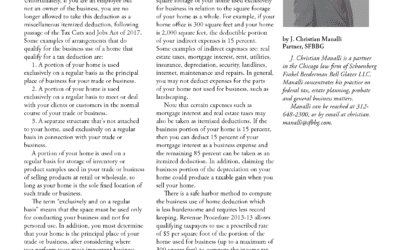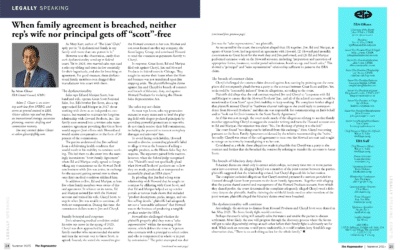In a 62-page opinion entered on November 15, 2024, a Texas federal district court vacated the Final Rule. The Order effectively prevents the Jan. 2025 increase from taking effect, and also retroactively undoes the July 2024 increase. As a result, the salary thresholds for exempt employees revert to pre-Final Rule levels; that is, $684 per week ($35,568 annualized) for EAP exemptions, and $107,432 annualized for the HCE exemption. Employers should be aware that some states have their own salary thresholds and duties tests for determining employee exemptions from wage and overtime requirements under state law, which may differ from the FLSA’s standards.
On April 23, 2024, the Department of Labor published a Final Overtime Rule that amends the regulations established under the Fair Labor Standards Act (FLSA) governing exemptions from minimum wage and overtime pay mandates for executive, administrative, and professional employees, as well as highly compensated employees. The Final Rule is set to take effect on July 1, 2024 and includes built-in adjustments of compensation levels on a going-forward basis.
By way of background, the FLSA generally requires that most employees be paid at least the federal minimum wage for all hours worked and overtime wages equal to at least time and one-half the regular rate of pay for all hours worked in excess of 40 in a workweek. However, some employees who are employed as bona fide executive, administrative, professional (EAP), outside sales, and certain computer employees and highly compensated employees (HCE) are exempt and need not be paid overtime wages.
The DOL’s Final Overtime Rule primarily increases the salary level provision of the EAP and HCE exemptions. The EAP exemptions apply to employees 1) who are paid a salary, 2) in at least a specified weekly salary amount, and 3) who primarily perform duties that fall within those exemption categories as defined in the DOL regulations. The HCE exemption applies to employees 1) who earn a minimum of total annual compensation which is comprised in part of salary, 2) whose primary duty includes performing office/non-manual work, and 3) who customarily and regularly perform at least one of the EAP exempt duties.
Specifically, the Final Overtime Rule increases the standard salary level for EAP exemptions from $35,568 to $43,888 per year beginning on July 1, 2024, and to $58,656 per year beginning on January 1, 2025. The Final Overtime Rule also increases the compensation threshold for HCEs from $107,432 to $132,964 on July 1, 2024, and to $151,964 on January 1, 2025. These amounts will be further adjusted beginning July 1, 2027 and every three years thereafter. Employees who do not meet these requirements will be entitled to overtime compensation for hours worked in excess of 40 in a workweek. It is important to remember that some states have higher salary thresholds for exemptions from overtime pursuant to their local wage and hour laws.
The DOL estimates these updates will affect more than 3 million workers. Companies are well advised to examine the classification of their existing workforce, identify whether any employees will be impacted by the new rule, and develop a comprehensive plan for complying with the new rule.
For any questions regarding wage and hour compliance, please contact Adam Maxwell at [email protected] or 312-648-2300.
This article has been updated as of December 17, 2024.



